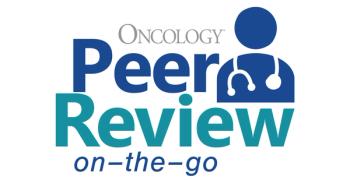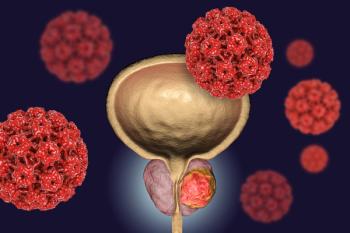
Robert A. Figlin, MD, discusses the potential role of adjuvant immunotherapy for patients with bladder cancer.

Your AI-Trained Oncology Knowledge Connection!

Genitourinary Cancer Chair
Deputy Director, Cedars-Sinai Cancer
Steven Spielberg Family Chair in Hematology-Oncology
Professor, Biomedical Sciences
Professor, Medicine
Cedars-Sinai Medical Center
Los Angeles, CA
Robert A. Figlin, MD, is a professor of medicine and biomedical sciences, director of the Division of Hematology/Oncology, deputy director of the Samuel Oschin Comprehensive Cancer Institute, and deputy director of Integrated Oncology at Cedars-Sinai Medical Center in Los Angeles, California. Figlin received his medical degree from the Medical College of Pennsylvania. He completed his residency and chief residency in internal medicine at Cedars-Sinai Medical Center and a fellowship in hematology/oncology at the David Geffen School of Medicine at the University of California, Los Angeles. His major oncologic focus is in thoracic and genitourinary tumors. A nationally recognized leader in genitourinary and thoracic oncology, Figlin’s research focuses on renal cell carcinoma and thoracic malignancies.

Robert A. Figlin, MD, discusses the potential role of adjuvant immunotherapy for patients with bladder cancer.

Robert A. Figlin, MD, spoke with CancerNetwork® about emerging second-line therapies as the paradigm of first-line treatment evolves for patients with metastatic clear cell renal cell carcinoma.

Robert A. Figlin, MD, details how his institution, Cedars-Sinai Cancer, is aiming to fully understand the cancer journey for those with genitourinary malignancies.

Robert A. Figlin, MD, highlights toxicities that patients with renal cell carcinoma experience while on cabozantinib.

CancerNetwork® sat down with Robert A. Figlin, MD, at the 2021 ASCO Annual Meeting to discuss the results of the KEYNOTE-564 trial with adjuvant pembrolizumab in patients with resected clear cell renal cell carcinoma.

In recent years, first-line therapies for metastatic renal cell carcinoma (mRCC) have shifted to a combination of immune checkpoint inhibitors or a combination of antiangiogenesis tyrosine kinase inhibitors (TKIs) and immunotherapy. This has led to a need to address standard-of-care treatment in the second-line setting.

CancerNetwork® sat down with Robert A. Figlin, MD, at the 2021 ASCO Annual Meeting to discuss results of the CANTATA trial of cabozantinib with or without telaglenastat.

Experts in the field review integration of approved PARP inhibitors into advanced prostate cancer clinical practice.

The expert from Cedars-Sinai Cancer spoke about the continued integration of immunotherapy-based combination regimens, and the importance of utilizing the multidisciplinary care team to mitigate any possible toxicities that may arise.

Effectively, the field has tested agents for metastatic disease in only two clinical settings: primary management of metastatic disease (first-line) and after progression with a first-line therapy (second-line); however, there are no category 1 data that support the use of any agent in the third-line setting.